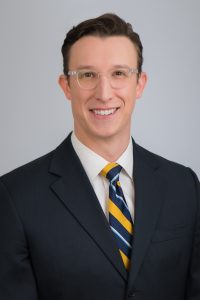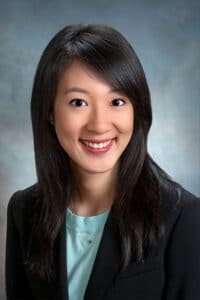Facial plastic surgery fellowship programs are offered in conjunction with the American Academy of Facial Plastic and Reconstructive Surgery's Educational and Research Foundation. They provide postgraduate training in facial plastic surgery.
Dr. Babak Azizzadeh of the CENTER for Advanced Facial Plastic Surgery in Los Angeles is a globally recognized facial plastic and reconstructive surgeon. He also serves as a Facial Plastic Surgery Fellowship Program Director and offers associate plastic surgery fellowship opportunities to top postgraduate surgeons.
What Are Plastic Surgery Fellowship Programs?
Plastic surgery fellowship programs are widely respected in the medical community. They help postgraduate surgeons advance their facial plastic and reconstructive surgery knowledge and skill set.
During a facial plastic surgery fellowship program, a postgraduate surgeon performs basic research and clinical trials. The surgeon also receives expert insights into facial plastic and reconstructive procedures. That way, the surgeon is well-equipped to perform simple and complex facial plastic and reconstructive treatments with precision and care.
Why Are Plastic Surgery Fellowship Programs Important?
A facial plastic surgery fellowship program enables postgraduate surgeons to gain real world experience. These surgeons can use the program to connect with a highly trained facial plastic and reconstructive surgeon. From here, they can learn how to perform a wide range of surgical and non-surgical facial plastic and reconstructive procedures.
Also, the program gives postgraduate surgeons many opportunities to ask questions and get expert insights into facial plastic and reconstructive treatments. As a result, the program can help a postgraduate surgeon take the next step forward in their career.
How Does Dr. Azizzadeh Select Associate Fellows?
As a fellowship director, Dr. Azizzadeh is recognized as an authority in facial plastic and reconstructive surgery education and training. Dr. Azizzadeh encourages postgraduate surgeons to apply for his facial plastic surgery fellowship program to supplement their residency training and career goals and interests.
Prior to becoming an Associate Fellow for Dr. Azizzadeh, candidates must graduate from medical school and have completed an intensive residency in head and neck surgery. As such, our Associate Fellow has already undergone extensive surgical training and is joining the program to receive advanced training in facial plastic and reconstructive surgery skills and techniques from Dr. Azizzadeh.
How Do Associate Fellows Assist Patients?
Dr. Azizzadeh trains and supervises his Associate Fellows. He lets his Associate Fellows meet with patients and learn about their facial plastic and reconstructive treatment goals. Also, Dr. Azizzadeh allows his Associate Fellows to perform injectable treatments after cosmetic surgeries.
When Dr. Azizzadeh works with Associate Fellows, he encourages them to capitalize on the learning opportunity. Dr. Azizzadeh wants his Associate Fellows to communicate and collaborate with patients. In doing so, Dr. Azizzadeh's Associate Fellows can gain valuable facial plastic and reconstructive treatment experience. Ultimately, they will be able to apply this experience to safely and effectively perform a wide range of cosmetic procedures.
What Should Patients Expect from Associate Fellows?
The patient experience remains virtually identical for those who meet Dr. Azizzadeh and an Associate Fellow. Dr. Azizzadeh will introduce his Associate Fellow to his patient. Next, the patient can work with both Dr. Azizzadeh and his Associate Fellow to accomplish their cosmetic treatment goals.
Meanwhile, a patient may meet exclusively with an Associate Fellow. For example, an Associate Fellow can provide Botox injections to a patient coping with facial paralysis. In this instance, the patient likely won't have to wait long to get their treatment. Furthermore, the procedure may be more cost-effective in comparison to receiving cosmetic treatment elsewhere.
What Is It Like to Serve As an Associate Fellow?
Associate Fellows have a unique opportunity to learn the ins and outs of facial plastic and reconstructive surgery from Dr. Azizzadeh. And they do everything in their power to make the most of this opportunity.
Dr. Azizzadeh promotes communication and collaboration with his Associate Fellows. He wants his Associate Fellows to come forward with facial plastic and reconstructive surgery concerns and questions. Then, Dr. Azizzadeh can discuss facial plastic and reconstructive surgery topics with his Associate Fellows. As a result, he can help his Associate Fellows become facial plastic and reconstructive surgery experts.
Furthermore, Dr. Azizzadeh discusses the challenges associated with various facial plastic and reconstructive treatments with his Associate Fellows. He provides advice to help his Associate Fellows identify and address these challenges. Thus, Dr. Azizzadeh helps his Associate Fellows pursue facial plastic and reconstructive surgery careers..
Introducing Our 2021-2022 Associate Fellows
The CENTER is proud to welcome Associate Fellows Dr. Adrian E. House and Dr. Lexie Wang.
Dr. Adrian E. House
 Dr. House serves as an Associate Fellow to facial plastic and reconstructive surgeon Dr. Paul Nassif. He grew up in the San Francisco Bay Area and earned a master's degree in biomedical engineering and a medical degree from Boston University. Dr. House completed a medical internship and residency focused on otolaryngology (head and neck surgery) at the University of California, San Francisco. During this time, he published several scientific manuscripts and book chapters relating to facial plastic and reconstructive surgery.
Dr. House serves as an Associate Fellow to facial plastic and reconstructive surgeon Dr. Paul Nassif. He grew up in the San Francisco Bay Area and earned a master's degree in biomedical engineering and a medical degree from Boston University. Dr. House completed a medical internship and residency focused on otolaryngology (head and neck surgery) at the University of California, San Francisco. During this time, he published several scientific manuscripts and book chapters relating to facial plastic and reconstructive surgery.
Along with the aforementioned achievements, Dr. House was awarded Best Clinical Research award and received the prestigious UCSF Catalyst Grant for device development. He also has two U.S. patent-pending inventions that help alleviate head and neck inflammation.
Dr. Lexie Wang
 Dr. Wang serves as an Associate Fellow to Dr. Nassif. She was born and raised in the Washington D.C. area. Dr. Wang completed her undergraduate education at the University of California, San Diego. Following her graduation, Dr. Wang worked full-time in a research lab and studied circadian rhythms. She then completed her medical education at the University of Virginia.
Dr. Wang serves as an Associate Fellow to Dr. Nassif. She was born and raised in the Washington D.C. area. Dr. Wang completed her undergraduate education at the University of California, San Diego. Following her graduation, Dr. Wang worked full-time in a research lab and studied circadian rhythms. She then completed her medical education at the University of Virginia.
Most recently, Dr. Wang finished residency training in otolaryngology at the Virginia Commonwealth University Medical Center. Here, she published academic papers and textbook chapters and earned the American Academy of Otolaryngology Head and Neck Surgery Resident Leadership Grant and other accolades.